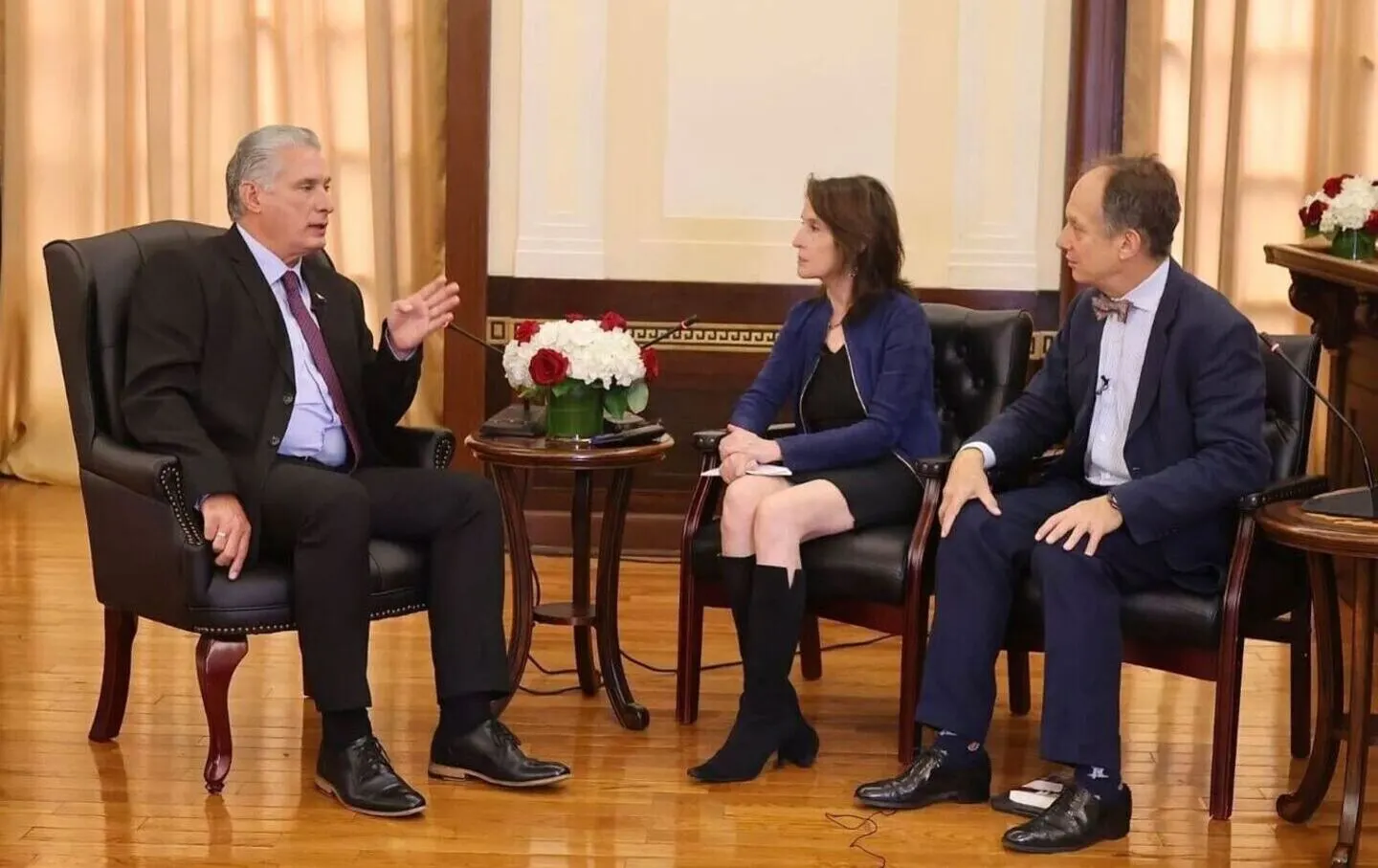- cross-posted to:
- [email protected]
- cross-posted to:
- [email protected]
For the first time in history, the president of Cuba sits down with a US outlet to share his thoughts on the future of Cuban socialism, the US blockade, and the economic difficulties facing the island nation.
In late September, The Nation’s publisher, Katrina vanden Heuvel, and its editor, D.D. Guttenplan, met with Cuban president Miguel Díaz-Canel for an exclusive interview in New York.
It was the president’s first-ever interview in the United States. They discussed the economic crisis facing his island nation, the future of its socialist model, and the impact of continued hostility from Washington.
read more: https://www.thenation.com/article/politics/interview-cuban-president-diaz-canel/
archive link: https://archive.ph/4Aady



I’m afraid to read.
It’s actually really good, the last question is dumb as fuck though. They ask if he’s seen Barbenheimer.
Overall this is an incredibly softballed interview where the only minor pushback he got was on them questioning how state and private industry work together to which he responds:
Along with explaining that a large amount of the private sector in Cuba is cooperative.
I’ve been thinking a lot recently about how to develop the productive forces in early stages of socialism in countries that are not transitioning out of the highest stages of capitalism, without just replicating most capitalist forms. I feel like cooperatives might be a good solution. The challenge is I don’t see how cooperatives would be adept at increasingly investing in capital that reduces labor like how a capitalist would, but idk these are just some half-baked thoughts.
That’s where the state comes in. The cooperatives usually lease labor saving equipment from the state who then purchases the goods produced by the cooperative. China and Cuba both follow this model (though mostly through agricultural cooperatives). I think that outside heavy industries, development can be bootstrapped by creation of a robust open public research and development sector and investment in cooperatively run light industrial shops that apply that research on a small scale.
Essentially allowing cooperatives to tap the national (or global) research space and find ways to apply that research outside large scale production. Then the state can take those developments and add the scale of that smaller industry expands, convert it to a nationalized monopoly.
That model is essentially how open source works, except that labor is not being exploited for the common advancement of society, but as a way for capitalists to steal labor.
It’s also worked for development of regional agricultural production in China and Cuba.
Man I definitely want to learn more about agriculture cooperatives in China and Cuba. I’ve been stuck on this “agriculture under socialism is really hard to figure out” kick for a while (because I’ve been reading too much about 1920s & 30s USSR history, frankly)
The Cuban Center for the study of Apiculture is a good start. These bees are controlled by a state organ, but they’re moved around and taken care of to allow for farmers to come get them from essentially “bee banks” to help pollinate their crops.
As you can see, each individual Apiary uses specialty methods developed for the types of bees they have in their region. So they all have some form of independence to do their work in a specialized way while all this knowledge is then aggregated by the state body and worked back into the education system.
I believe that Cuba has an extensive “trade school” system where farmers can go and learn about best practices and get the most up to date information coming out of state research bodies like this for free.